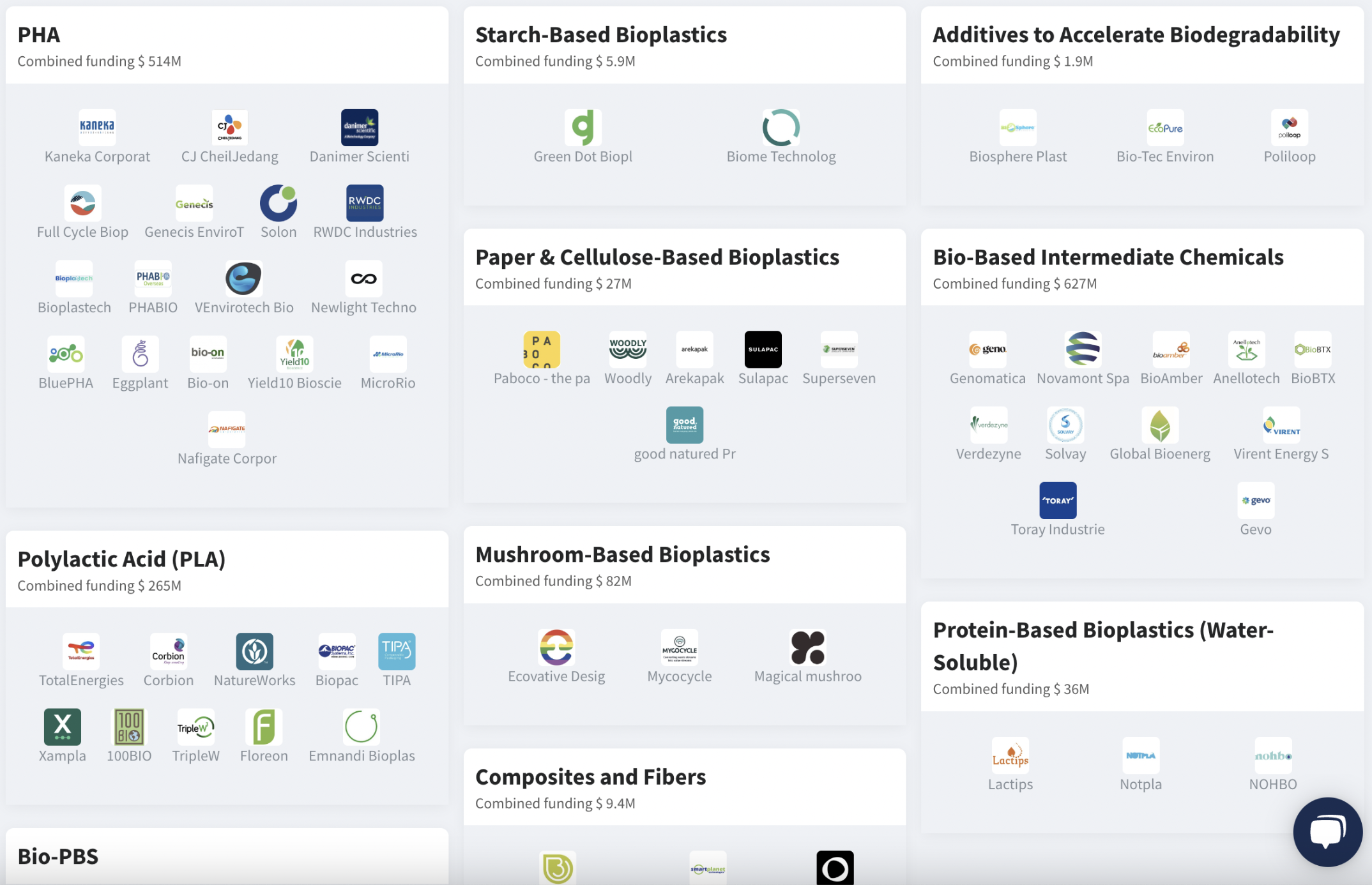Bio-based plastics

Next month’s Plastic Free July is an eco-friendly initiative encouraging people to reduce their reliance on single-use plastic disposables, reduce plastic pollution, and push for lasting solutions to the plastic pollution crisis- during July and beyond.
Along with community programs and global initiatives, there are startups and scaleups enabling tech solutions to reduce single-use plastics and pollution through the development of bio-based plastics.
What is bio-plastic? A bio-based plastic is made from renewable resources instead of fossil fuels. Examples of renewable carbon resources include corn, potatoes, rice, soy, sugarcane, wheat, and vegetable oil. Important to note, a bio-based plastic can be partly or entirely bio-based.
Overview of the eco-system: The bio-based plastics ecosystem is relatively small and early stage with a combined enterprise value of $5b. Companies in late stage funding rounds make up a little over half of the ecosystem’s combined value, at $2.8b.
Notable startups include Japan’s chemicals major Mitsubishi Chemical and California-based Origin Materials, which are collaborating to develop sustainable high performance carbon black materials for the tire industry from wood biomass. Another, Magical Mushroom puts agricultural waste to work by combining it with mycelium, which is the root structure of mushrooms. It creates a material that is biodegradable, durable and comparable in price to traditional packaging derived from fossil fuels like polystyrene.
The bottom line: Initiatives like Plastic Free July speak to global movements encouraging consumers and businesses to change practices. Hopefully, more projects like this will drive adoption of tech solutions to move away from single-use plastics.
The bio-based plastics landscape is reaching new heights with continuing growth. Don’t miss out on the startups and scaleups shaping and innovating bio-based plastics by clicking the button below. 👇
Interested?
